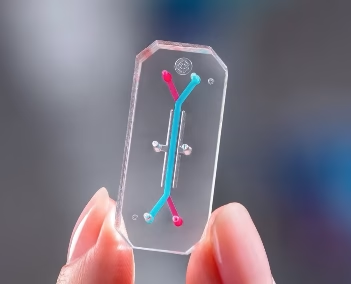With all the amazing advances in biomedicine pushing us into a new era of personalized medicine,
organ-on-a-chip (OOC) technology is one that definitely stands out. This amazing tool lets us replicate how entire organs or organ systems work in a compact, multi-channel, three-dimensional chip that’s packed with living cells. In simpler terms, it shows how human bodies react, and helps researchers and doctors figure out treatments that fit you better. This fascinating technology allows researchers and healthcare providers to study diseases more accurately and develop targeted therapies that take into account the unique biological characteristics of individual patients, thereby moving away from the one-size-fits-all treatment approach that has often limited effective patient care.
Improving Patient Outcomes through Personalized Medicine
Through organ-on-a-chip technology, the future of personalized medicine is rapidly becoming a reality as OOC platforms allow clinicians to gather critical data that can lead to better health outcomes for patients suffering from a wide range of diseases, including cancer, cardiovascular diseases, and neurodegenerative disorders. The ability to study how individual patients’ cells react to specific drugs can ultimately empower doctors to prescribe tailored treatment plans that take into full consideration the unique genetic makeup and health history of each patient. Also, by speeding up the way we discover and test new treatments, this exciting approach is set to boost how well these therapies work while cutting down on any side effects, but the best part in all of it is that patients dealing with tough, long-term health issues can look forward to a better quality of life overall.
Drug Tests Safer and More Accurate for Humans
Last year, the
FDA dropped the requirement for animal testing before human drug trials, and that’s opening the door to some pretty exciting new alternatives, including organ-on-a-chip technology. This tiny 3D cell culture is a revolutionary tool because it actually recreates the environment of any human organ, and allows researchers to pump drugs through channels lined with different human cells and fluids. By doing this, they can effectively mimic how the body would respond in real life. A great example of this innovation is when a company called Emulate recently used a liver-on-a-chip to screen 27 drugs that had previously passed animal testing but ended up causing liver toxicity in humans. Remarkably, the device flagged an impressive 87 percent of those harmful compounds, reinforcing its potential to be even more reliable than traditional animal tests. Ultimately, the big idea here isn’t just about cutting down on animal testing; it’s about enhancing safety and accuracy in drug tests for humans as we advance in medical research.
Data Privacy in the Tech Age
As the integration of technology such as organ-on-a-chip expands, patients must also be aware of the importance of data privacy in this tech-savvy age. With the increasing digitization of health information and the use of personalized patient data gleaned from sophisticated technologies, it is crucial that patients understand how their data is protected, and processed. Patients should definitely ask how their sensitive information is being kept safe and private. In other words, it’s important to know how data is stored, who can access it among the healthcare providers, and if there’s any chance that their info might be used for research or commercial reasons. Transparency should be a priority, and everyone involved in the landscape of modern medicine must work together to build trust by implementing robust data protection practices.
The amazing potential of organ-on-a-chip (OOC) technology, especially when combined with solid data privacy practices, really gives us a glimpse of how patient care can be taken to the next level. It comes down to improving treatments, but it’s also about giving people the tools and information they need to take control of their own health and well-being in a world that’s becoming more digital every day.

